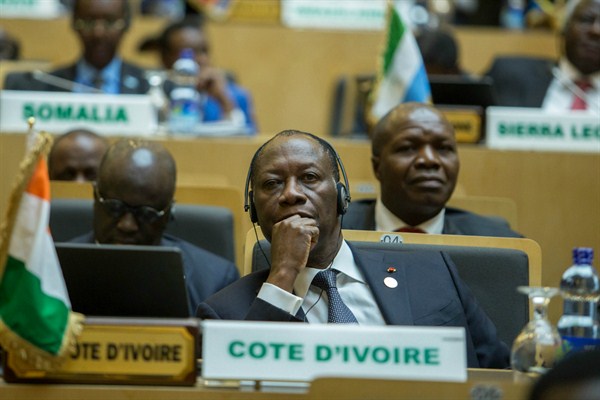Five years after Cote d’Ivoire’s 2011 post-election crisis came to a bloody end, the trial of former First Lady Simone Gbagbo for crimes against humanity is set to open this month in Abidjan, the country’s biggest city and economic hub. More than 3,000 people were killed, 150 women raped and hundreds of thousands displaced during five months of fighting after Gbagbo’s husband, then-incumbent President Laurent Gbagbo, refused to step down despite losing the November 2010 presidential runoff vote to challenger Alassane Ouattara. Simone Gbagbo’s trial will mark the first time an Ivoirian court has dealt with international crimes committed during that conflict, which triggered the worst violence the country has experienced since its independence in 1960.
Yet justice and human rights advocates are hardly rejoicing. To the contrary, they’re worried the trial will merely reinforce the Ivoirian judiciary’s reputation for being shoddy and biased—a reputation that continues to undermine progress the country has made in other areas. Since taking office in May 2011, Ouattara has received high marks for overseeing an economic rebound and restoring security. Last October, he crushed a divided opposition to win a second five-year term in a peaceful election. But the handling of cases stemming from the 2011 conflict remains a glaring blemish on his record.
Since they were arrested together in an underground bunker at the height of the 2011 fighting, Laurent and Simone Gbagbo have traced very different paths, neither of which has done much to promote national reconciliation. In November 2011, the ousted president was transferred to the International Criminal Court in The Hague, becoming the first former head of state to be taken into the court’s custody. Along with Charles Ble Goude, his former youth minister and leader of the notorious pro-Gbagbo militia group the Young Patriots, he is accused of responsibility for crimes against humanity, including murder, rape and persecution. The case against the two men opened in January.

